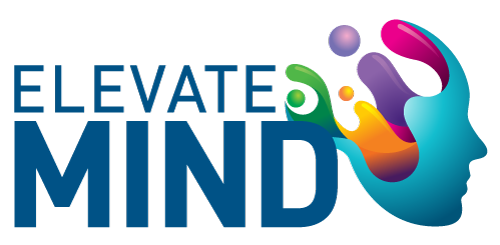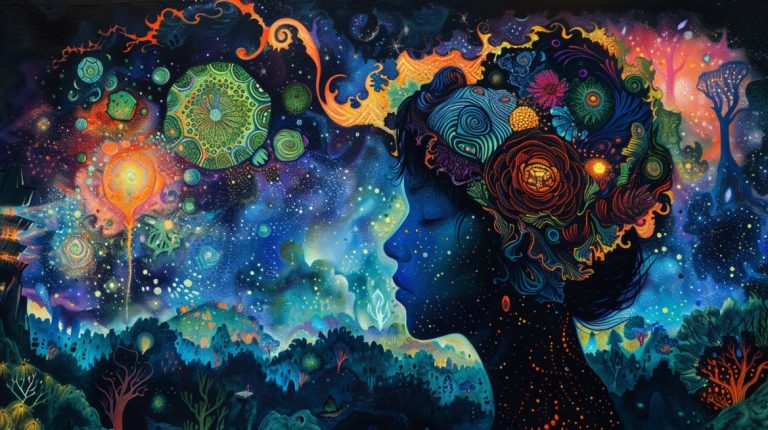What Is Psychedelic Assisted Psychotherapy ?

Key Takeaways
- Understand Psychedelic Assisted Psychotherapy involves using psychedelics in conjunction with therapy to treat mental health conditions.
- Psychedelics like MDMA and psilocybin are commonly used in treatment to help patients address trauma and emotional issues.
- Psychedelic Assisted Psychotherapy shows promise in treating conditions like PTSD, depression, and anxiety disorders.
- Using psychedelics in therapy has shown positive results in helping individuals overcome substance use disorders.
- Psychedelics have been found to be effective in reducing symptoms of anxiety and depression when used in a therapeutic setting.
Understanding Psychedelic Assisted Psychotherapy
Psychedelic Assisted Psychotherapy, a groundbreaking approach to mental health treatment, combines the use of psychedelics with psychotherapy techniques to enhance therapeutic outcomes. Booker C and Taitano EK, in their article “Psychedelic-Assisted Psychotherapy: A Paradigm Shift in Psychiatric Research and Development” delve into the strength of this innovative treatment method. The use of substances like phosphoriloxy-N, N-dimethyltryptamine and psilocybin can induce transformative experiences that facilitate healing and personal growth. With the guidance of trained therapists, patients may confront deep-seated issues such as trauma, addiction, and mood disorders. This breakthrough treatment, pioneered by pioneers like Albert Hofmann and supported by institutions like the John Hopkins Psychedelic Research Center, has shown promising results in providing relief where traditional therapies have fallen short.
Definition: Psychedelic Assisted Psychotherapy
Psychedelic Assisted Psychotherapy refers to a unique therapeutic approach that integrates the use of psychedelics to enhance the effectiveness of psychotherapy. This innovative method involves the administration of substances like psilocybin and ketamine in a controlled setting to facilitate deeper connections with one’s emotions and subconscious. What is Psychedelic Assisted Psychotherapy? It aims to explore the correlations between altered states of consciousness induced by psychedelics and the therapeutic process, offering new possibilities for treating a variety of mental health conditions. This emerging field has gained attention for its potential to address issues such as anxiety, depression, PTSD, and substance abuse within specific populations.
Psychedelic Assisted Psychotherapy has shown promising results in various studies and trials, leading to a growing interest in its applications. The recent decriminalization of substances like psilocybin has opened up new avenues for research and treatment modalities. With researchers like Smith DG and Amy Morin exploring the benefits of psychedelic therapies, the field is evolving rapidly. From psilocybin facilitators to integration sessions and neuroimaging research, the medium of psychedelic therapy work continues to expand. As we delve deeper into the realms of psychedelic art, therapy tools, and the role of different substances in treatment, the future implications of Psychedelic Assisted Psychotherapy hold significant promise for revolutionizing mental health care.
The History of Psychedelic Therapy Techniques
Psychedelic Assisted Psychotherapy refers to a form of treatment that incorporates the therapeutic use of psychedelic compounds in a controlled and supervised clinical setting. This unique approach aims to enhance the psychotherapeutic process by leveraging the introspective and transformative properties of substances like LSD, psilocybin, and MDMA. The concept blends traditional psychotherapy techniques with the intentional use of psychedelic substances to facilitate deep emotional exploration and personal growth. It is guided by trained psychotherapists who help individuals navigate their psychedelic experiences to promote healing and insight. Research into the potential benefits of Psychedelic Assisted Psychotherapy has gained traction in recent years, shedding light on its promising applications in mental health treatment.
Early pioneers of Psychedelic Assisted Psychotherapy, such as Abramson, Eisner, and Grof, played instrumental roles in developing novel therapeutic techniques that integrated hallucinogenic substances for therapeutic purposes. Their work paved the way for modern research exploring the efficacy of psychedelics in psychiatric treatment. The use of psychedelics like LSD, psilocybin, and mescaline gained attention in the 1950s and 1960s, particularly in research conducted by psychiatrists like Jones and Michaux. These studies aimed to understand the potential of psychedelic substances in treating various mental health conditions. The historical evolution of psychedelic therapy techniques, from groundbreaking studies in Israel to contemporary investigations by notable researchers like Krupitsky and Vollenweider, has shaped the current landscape of Psychedelic Assisted Psychotherapy.
| Researcher | Contribution | Key Findings |
|---|---|---|
| Stanislav Grof | Developed Holotropic Breathwork | Explored non-ordinary states of consciousness |
| Timothy Leary | Advocated for the therapeutic use of LSD | Explored the potential for personal growth |
| Albert Hofmann | Discovered LSD | Initiated research on psychedelic effects |
| Michael Mithoefer | Conducted MDMA-assisted therapy studies | Explored PTSD treatment potential |
Psychedelics Used in Treatment
Psychedelics used in treatment are an integral part of Psychedelic Assisted Psychotherapy (PAP), a method that combines the benefits of psychedelics with psychotherapy techniques. Studies have shown the cost-effectiveness and efficacy of this treatment approach, making it a promising option for various mental health conditions. With the flexibility and potential for deep introspection offered by psychedelics like psilocybin and LSD, patients can experience significant improvements in their conditions. The use of psychedelics in therapy has gained traction in the scientific community, with researchers like Grof and Deacon exploring its treatment potential. The inclusion of psychedelics in therapy has shown promising results in alleviating symptoms of mood disorders and PTSD, making it a valuable tool in the realm of mental health treatment.
Role of Psilocybin Facilitators
Psilocybin facilitators play a crucial role in the realm of Psychedelic Assisted Psychotherapy, which aims to integrate the therapeutic potential of psychedelics into mental health treatment. What is Psychedelic Assisted Psychotherapy? This revolutionary approach combines the careful administration of psychedelic substances with psychotherapy sessions to address a variety of mental health issues. Psilocybin facilitators are trained professionals who guide individuals through their psychedelic experiences, providing support, ensuring safety, and helping them navigate the often intense psychological landscapes that these substances can evoke. They work closely with clients before, during, and after psychedelic sessions to maximize the therapeutic benefits and mitigate potential challenges, emphasizing trust, safety, and emotional processing throughout the treatment journey.
The involvement of psilocybin facilitators can significantly impact the outcomes of Psychedelic Assisted Psychotherapy programs. By fostering a safe and supportive environment, these professionals enhance the therapeutic process and help individuals address deep-rooted problems such as trauma, depression, and anxiety. Through the skillful guidance of psilocybin facilitators, clients can explore their inner experiences, confront challenging emotions, and work towards meaningful insights and healing. The expertise of these facilitators is instrumental in ensuring that individuals receive the necessary care and support during their psychedelic-assisted therapy sessions, ultimately contributing to the overall success and effectiveness of the treatment program.
Characteristics of the Psilocybin Table
Psychedelic Assisted Psychotherapy involves the use of psychedelics, like psilocybin, alongside therapy sessions to help individuals address mental health issues. The Characteristics of the Psilocybin Table include its potential in targeting serotonin levels in the brain, releasing impulses while desynchronizing networks that play a role in mental health diagnosis. Research volunteers have been involved in pilot studies to understand psilocybin’s impact on mood disorders and substance use conditions. With a dose investigation of psilocybin at 10%, the opportunity to bridge the gap between conventional treatments and innovative psychedelic therapy approaches is being explored.
The Psilocybin Table showcases a pilot trial design focused on the integration of psilocybin in therapy to help patients struggling with OCD, depression, and other mental health conditions. Notably, the table illustrates the possible involvement of psilocybin metabolites in altering serotonin activity in the brain, offering prospects for emotion regulation and plasticity. With the publication of studies like ‘ACS Pharmacol Transl Sci.’, showing the efficacy of psilocybin in treating mental disorders, the Psilocybin Table highlights the importance of this psychedelic substance in revolutionizing mental health treatments.
| Study | Participants | Conditions | Psilocybin Dose | Findings |
|---|---|---|---|---|
| Pilot Study 1 | 20 | Mood Disorders | 10% | Positive impact on mood regulation |
| Pilot Study 2 | 15 | Substance Use | 10% | Reduction in substance cravings |
| Therapy Integration | 25 | OCD, Depression | N/A | Improved emotion regulation |
| Metabolite Analysis | 10 | Brain Activity | N/A | Impact on serotonin levels |
Implications for Mental Health Conditions
Psychedelic Assisted Psychotherapy (PAP) is a novel approach that combines the use of psychedelic substances with psychotherapy to address various mental health conditions. The prospect of utilizing psychedelics in therapy has gained significant attention in recent years, particularly after Michael Pollan’s acclaimed book on the subject. Estimates suggest that PAP has the potential to revolutionize mental health treatment due to its unique mode of action and promising outcomes in clinical trials. The practice involves a structured procedure where individuals are guided by trained facilitators to navigate their inner experiences, leading to profound insights and psychological healing. The legality and scheduling of psychedelics like psilocybin, a key component in PAP, remain debated topics, but the growing body of research supporting their efficacy in treating mood disorders and PTSD underscores the importance of a thorough reevaluation of current drug policy frameworks.
Potential Treatment for Mood Disorders
Psychedelic Assisted Psychotherapy (PAP) is a unique therapeutic approach that combines the use of psychedelic substances with traditional psychotherapy techniques. It aims to facilitate deep emotional exploration and insight by enhancing a patient’s state of mind through the administration of substances like psilocybin or MDMA. The intention behind PAP is to create a safe setting where individuals can address underlying mental health concerns, such as mood disorders, with the support of trained therapists. Research on PAP shows promising results, suggesting that it may offer new avenues for the treatment of mood disorders, contrary to conventional approaches.
Studies exploring the potential of PAP for mood disorders have shown account info that psychedelic-assisted interventions can lead to significant improvements in mood and overall well-being. These interventions often involve a structured approach to guide patients through experiences of ego dissolution and deep self-reflection. Researchers like Evans L. argue that the transformative effects of psychedelics can help individuals break free from entrenched patterns of thinking and behavior. By allowing patients to explore their inner world in a profound and unique way, PAP offers a fresh perspective on mental health concerns and the potential for long-lasting positive changes in individuals struggling with mood disorders.
Intervention for Post Traumatic Stress Disorder (PTSD)
Psychedelic Assisted Psychotherapy (PAP) is an innovative treatment that combines traditional psychotherapy with the careful use of psychedelic compounds. In the realm of mental health treatments, PAP is gaining recognition for its potential in treating various conditions. Particularly, in the area of Post Traumatic Stress Disorder (PTSD), PAP offers a promising intervention. Through manualized therapy sessions under psychedelic drug supervision, individuals with PTSD have reported significant improvements in symptoms and an increased sense of well-being. The characteristics of PAP, such as its ability to facilitate deep introspection and emotional processing, make it a valuable tool in addressing the complex effects of trauma. Overall, the integration of psychedelics into therapeutic practices opens a new paradigm for treating PTSD and other mental health conditions.
Psychedelic Assisted Psychotherapy and Substance Use Disorders
Psychedelic Assisted Psychotherapy offers a unique approach to addressing Substance Use Disorders. What is Psychedelic Assisted Psychotherapy? It involves utilizing psychedelic substances, such as psilocybin, under the guidance of trained therapists to explore the underlying causes of addiction and facilitate healing. Research conducted by Anschutz researchers (Kupferschmidt, 2019) and scientists has shown promising results in treating various substance dependencies like alcoholism through psychedelic therapy techniques. By targeting the brain’s serotonin receptors and promoting neural plasticity, psychedelics like psilocybin can help individuals break free from the cycle of addiction by addressing imbalances and creating new pathways for growth. The use of psychedelics in therapy shows potential in providing a novel and effective approach to addressing substance use disorders, offering hope for those struggling with addiction.
Dealing with Alcohol Use Disorder
Psychedelic Assisted Psychotherapy (PAP) has emerged as a promising approach for addressing alcohol use disorder. PAP combines the therapeutic effects of psychedelics, such as psilocybin, with psychotherapy techniques to help individuals struggling with alcohol dependence. Research suggests that PAP can lead to profound changes in perception and thought processes, potentially reframing the individual’s relationship with alcohol. By integrating psychedelic experiences into the treatment plan, PAP aims to address the underlying causes of alcohol use disorder and promote lasting behavior change.
One pioneer in the study of PAP for alcohol use disorder is Dr. Danielle Wade. Her work focuses on the use of psychedelics to enhance self-awareness and reduce cravings associated with alcohol addiction. Through carefully designed study protocols and population studies, Dr. Wade and her team are exploring the principles of PAP and its risk-benefit profile for individuals with alcohol use disorder. Their research delves into the therapeutic potential of psychedelics in treating substance dependence, shedding light on the value-system and guidelines that can transform current treatment approaches.
Implications for Other Substance Use Disorders
Psychedelic Assisted Psychotherapy (PAP) has opened up new avenues for addressing substance use disorders beyond traditional methods. The concept of utilizing psychedelic drugs in therapy to treat a variety of mental health conditions has gained momentum in recent years, with a handful of pioneer psychiatrists paving the way for its use. A study published in the journal Frontiers in Pharmacology (source: 10.3389/fphar.) demonstrated promising results, showing a 23% reduction in substance abuse among criminal justice populations receiving psychedelic-assisted treatment.
The implications of PAP for other substance use disorders extend beyond just addiction treatment. Evidence suggests that PAP may have potential benefits for addressing the underlying factors contributing to substance abuse, such as trauma, depression, and anxiety. By incorporating psychedelic-assisted sessions into existing therapy protocols, there is a possibility of achieving higher success rates in treating substance use disorders. Studies have shown that PAP can help individuals address deep-seated issues that may be fueling their addictive behaviors, offering a new and innovative approach to addiction treatment.
The Effectiveness of Psychedelics on Anxiety and Depression
Psychedelic assisted psychotherapy (PAP) is an innovative approach that combines the use of psychedelic substances with psychotherapeutic techniques to address various mental health conditions. The effectiveness of psychedelics, such as psilocybin and ketamine, in treating anxiety and depression has gained significant attention in recent years. These substances have shown promising results in fast-tracking treatment outcomes and busting barriers in traditional psychotherapy settings. PAP aims to target the neurobiology of these conditions by promoting ego-dissolution and amplifications of positive emotions, ultimately leading to profound changes in symptomatology. Recent studies have highlighted the potential of psychedelics to address deep-seated conflicts and boost resilience in individuals struggling with anxiety and depression. The inclusion of psychedelics in therapy holds great promise in reshaping the treatment landscape for mental health providers and patients alike.
Efficacy Regarding Anxiety Disorders
Psychedelic Assisted Psychotherapy (PAP) has shown promise in the treatment of anxiety disorders. What is Psychedelic Assisted Psychotherapy? It is a therapeutic approach that combines the use of psychedelic drugs with psychotherapy to address various mental health conditions. Studies have indicated that PAP can lead to significant symptom reduction in anxiety disorders by enhancing emotional processing and promoting self-efficacy. The use of substances like psilocybin has been linked to an increase in acceptance and a decrease in symptom severity among individuals struggling with anxiety. These findings suggest that PAP may offer a unique and effective treatment modality for those suffering from anxiety disorders.
Conclusion
Psychedelic Assisted Psychotherapy combines the administration of psychedelic substances with psychotherapy to catalyze breakthroughs in the therapeutic process. The facilitator plays a crucial role in guiding the individual through the experience, ensuring safety, and supporting integration. Research, such as that conducted by Athanasios Kafkalides and George Greer, has shown the potential of psychedelics, like psilocybin, in influencing the human brain, leading to profound changes in thought patterns and self-identity. Understanding the history, onset, and effects of psychedelic substances is paramount in addressing various mental health conditions, including substance misuse, anxiety, depression, and PTSD. Incorporating psychedelic-assisted therapy into mainstream healthcare requires careful considerations of safety, legal implications, and ethical practices.
FAQS
What is Psychedelic Assisted Psychotherapy?
Psychedelic Assisted Psychotherapy is a form of therapy that incorporates the use of psychedelic substances to enhance traditional psychotherapeutic techniques.
How does Psychedelic Assisted Psychotherapy work?
In this therapy, individuals ingest a controlled dose of a psychedelic substance under the guidance of trained therapists to facilitate deep introspection and emotional processing.
What are the potential benefits of Psychedelic Assisted Psychotherapy?
Some potential benefits of this therapy include increased self-awareness, enhanced emotional processing, spiritual insights, and a reduction in symptoms of various mental health conditions.
Is Psychedelic Assisted Psychotherapy legal?
The legal status of Psychedelic Assisted Psychotherapy varies by country and region. In some places, it is approved for clinical trials and research, while in others, it remains illegal.
Are there any risks associated with Psychedelic Assisted Psychotherapy?
Like any form of therapy, there are risks involved with Psychedelic Assisted Psychotherapy, including potential adverse effects of psychedelic substances, psychological distress, and the importance of working with trained and experienced professionals.


